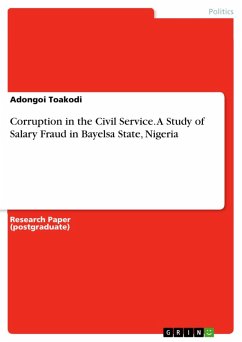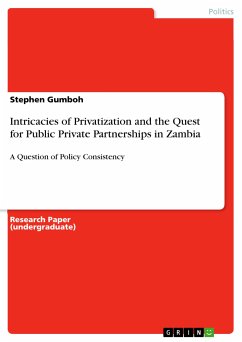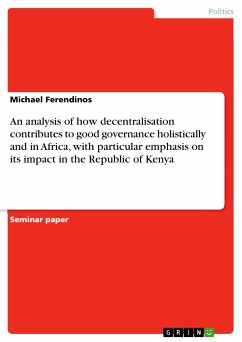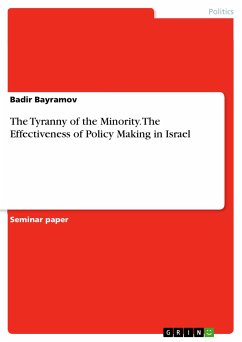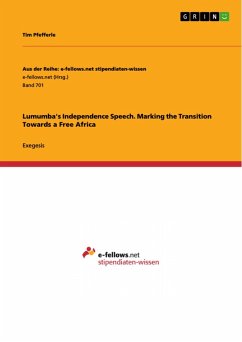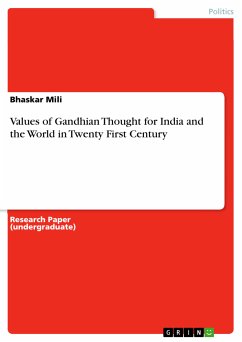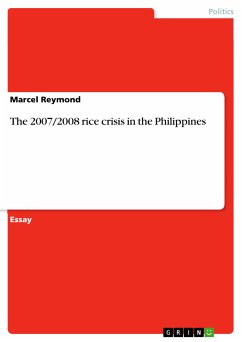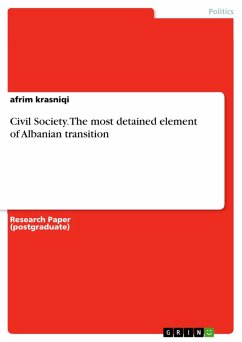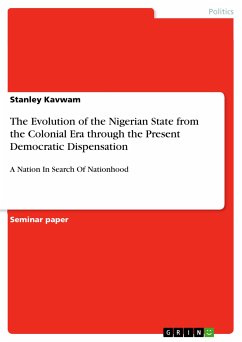
The Evolution of the Nigerian State from the Colonial Era through the Present Democratic Dispensation (eBook, PDF)
A Nation In Search Of Nationhood
Sofort per Download lieferbar
Statt: 17,95 €**
13,99 €
inkl. MwSt. und vom Verlag festgesetzt.
**Preis der gedruckten Ausgabe (Broschiertes Buch)
Alle Infos zum eBook verschenkenWeitere Ausgaben:

PAYBACK Punkte
0 °P sammeln!
Seminar paper from the year 2011 in the subject Politics - Region: Africa, , language: English, abstract: This paper explores the evolution of the Nigerian state from the colonial era through the present democratic dispensation and maintains that the only legacy bequeathed to the country by Western imperialism that has assumed independence is conceivably religion and/or ethnicity. It is the position of the paper that religion and ethnicity have more than any phenomenon significantly militated against the evolution of the country into a nation state. This underscores continuous agitation for su...
Seminar paper from the year 2011 in the subject Politics - Region: Africa, , language: English, abstract: This paper explores the evolution of the Nigerian state from the colonial era through the present democratic dispensation and maintains that the only legacy bequeathed to the country by Western imperialism that has assumed independence is conceivably religion and/or ethnicity. It is the position of the paper that religion and ethnicity have more than any phenomenon significantly militated against the evolution of the country into a nation state. This underscores continuous agitation for sub-regional autonomy and secessionist attempts by the Eastern region of the country as witnessed in the Biafra civil war of 1966. The Nigerian state has grappled with threats to nationhood since independence as several irredentist movements have truncated the maturation of the country into a nation state. Similarly, gross failure of leadership aided by corruption of political actors has stifled the transformation of the country beyond the colonial partitioning of 1914. The secularity of the Nigerian constitution has been interminably jettisoned in the pursuit of scarce social goods by political actors as amply demonstrated in the imposition of Sharia law in some northern states of the country. This has heightened religious and ethnic consciousness of citizens thereby constituting significant drag on the country's march to nationhood. The paper advocates the recognition of the country's plurality and diversity as building blocks of unity and national integration. Furthermore the de-politicization of religion and ethnicity are hereby conversed for the development of a robust and virile Nigerian nation.
Dieser Download kann aus rechtlichen Gründen nur mit Rechnungsadresse in A, B, BG, CY, CZ, D, DK, EW, E, FIN, F, GR, HR, H, IRL, I, LT, L, LR, M, NL, PL, P, R, S, SLO, SK ausgeliefert werden.





